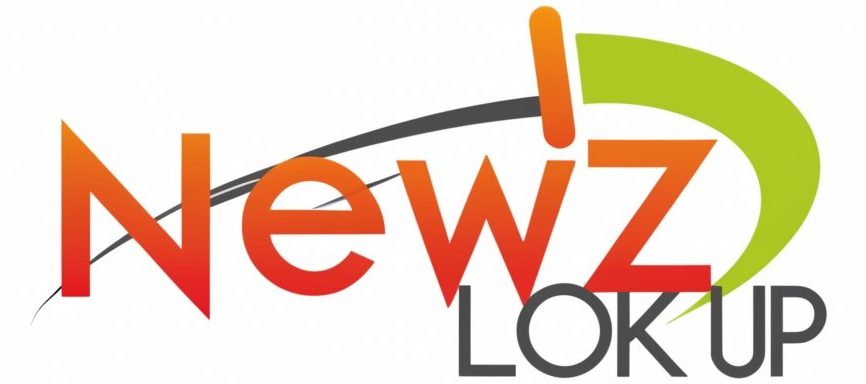Whether you are a new business owner or an experienced one, commercial insurance can help protect your assets. A good insurance broker-agent can offer many different types of commercial coverage to suit your needs.
Property insurance covers your buildings and personal property, including the permanent fixtures, machinery, and equipment that you use for your business. Policies can be written as all-risk policies or peril-specific, depending on the specific risks you face.
- General Liability
In most cases, a business needs several different kinds of commercial insurance in order to operate effectively and stay protected. That doesn’t mean that every type of business has to have all the same types of coverages, however. For example, a freelance front-end developer may not need liquor liability insurance any more than a bar owner does.
The right type of insurance can be a lifesaver for small businesses. Without it, you might face legal fees, judgments or settlements that would take your business completely out of business.
General liability is the most common type of business insurance and can cover a variety of expenses, including third-party bodily injury and property damage claims. It can also protect against claims of personal and advertising injury, such as copyright infringement, libel and slander.
Most business owners aren’t required to carry general liability insurance by law, but some customers will require it as part of a contract before they’ll work with you. You might also be asked to show proof of general liability coverage before you can purchase or lease a building for your business.
A business owner’s policy, or BOP, is a package of business coverages that typically includes general liability and other policies that you may need for your business. It’s often cheaper to get BOP coverage than to buy all of these policies as standalone policies.
Many BOPs are written through the Progressive Advantage Business Program, which provides extra protection when you need it most. It can help pay for claims related to theft, vandalism and severe weather.
Some BOPs also include product liability insurance, which can help pay for claims that your products caused injuries or damaged people’s property. This can be particularly important if your company manufactures, distributes or sells goods.
In addition to these two basic business insurance policies, you can also get umbrella and management liability insurance to protect your business from additional costs associated with costly claims. It’s best to purchase a policy that has a high liability limit because the costs of a claim can be extremely high.
Also Read: The Benefits of Life Insurance
- Property Insurance
Property insurance protects the physical buildings, equipment, inventory, and store fixtures of your business. It pays to repair or replace items damaged by fires, windstorms, earthquakes, and other events covered by the policy.
It also covers theft, vandalism and other mishaps to property you own. This coverage can be expensive, but it is one of the best ways to keep your business financially protected in case you lose your buildings or equipment due to an accident.
The first step is to consider your business’s risk and the types of property you own. Then, work with your insurance provider to determine what kinds of policies would be most beneficial for you and your business.
If you are a small business owner, chances are you have a lot of valuable assets, such as computers and electronics, inventory, and other items. You may be able to buy additional protection for these items by purchasing a separate policy called business hazard insurance or loss control insurance.
You might even need separate insurance to cover the contents of your business, such as desks and chairs. This coverage is important because it can help you recover from a loss and get back to business quickly after the disaster occurs.
There are several different deductibles to choose from when it comes to property insurance, including per building, per item and extended replacement cost. Choosing the right deductible for your needs is crucial to keeping the costs of your insurance down and getting the maximum amount of coverage.
Another important consideration is your business’s type of operations and how much risk you take on in the course of your day-to-day activities. A company that regularly suffers frequent losses can find it harder to get the right coverage and is likely to pay more for it.
It is very important to discuss your business’s risks and needs with an experienced insurance agent to determine the appropriate coverages for your specific situation. They will have the encyclopedia of information on all the different types of property loss events that can affect businesses and provide you with the policies that best fit your risk profile.
- Business Interruption Insurance
When a natural disaster, like a fire or flood, temporarily shuts down your business and leaves you without a place to operate from, business interruption insurance is there to help cover operating expenses and income losses. It’s usually included as part of a property policy or can be purchased separately.
In addition to providing coverage for your net income and normal operating expenses, business interruption insurance also reimburses you for extra expenses — such as leasing out a temporary location or paying movers. These extra expenses can be vital to helping your business reopen in the aftermath of a covered event.
The amount of coverage you purchase will depend on several factors, including your business’s location, the value of the commercial property, and the risk of a covered loss. Your insurance agent can review your risks and recommend the best options for you.
It’s important to understand that business interruption insurance is only triggered when your property is damaged by a covered peril. Typical triggers include fire, wind, and lightning damage to your building or property.
If your business depends on a leader location, such as a restaurant or sports or concert venue, you may have a higher risk of loss from business interruption. This can be especially common if your business is located in an area with a high risk of natural disasters.
As with most types of insurance, the specific terms and language of your policy can vary, so it’s crucial to familiarize yourself with this coverage and how it may or may not apply to your business. This knowledge will help you prepare for potential losses and ensure that your company has the best possible insurance protection.
You should consider a business interruption insurance policy for every business you operate. Even the most financially stable businesses can’t always afford to shut down if a storm or other covered loss causes them to close for a while.
It is also crucial to remember that the cost of business interruption insurance can be significantly reduced if you have adequate liability and property insurance in place. If your business is unable to pay its employees during a period of shutdown, you can’t expect them to be loyal customers.
- Commercial Auto Insurance
If you own or rent cars, trucks or vans that you use to drive for business purposes, you may need a commercial auto insurance policy. Investopedia defines this type of insurance as “insurance that covers physical damage and liability that is not covered by personal auto policies.”
While it’s similar to a standard car insurance policy, commercial vehicle coverage differs in many ways. For example, it typically includes different types of coverage than personal auto insurance, and it can include additional protections through endorsements or riders.
One of the most important things to understand about commercial auto insurance is that it can provide both liability and physical damage protection for your company’s vehicles. It also protects your business from losses resulting from theft, vandalism or certain weather events.
In addition to bodily injury and property damage, commercial auto policies can cover other claims, such as loss of earnings. This coverage can help pay if a driver is forced to stop working and cannot collect compensation from a customer or supplier for lost time, or it can help cover expenses for medical treatment.
It can also pay to clean up a mess caused by an accident, such as pollution that occurs in the cab of a commercial truck. The limits and exclusions of this coverage will vary from company to company, so it’s essential to shop around for a policy that fits your needs.
A good insurance agent can help you determine what type of coverage is right for your business and which options are available to add to your policy. For instance, Hynek notes that it’s a good idea to add uninsured/underinsured motorists coverage to your commercial auto policy. This coverage can be added for a minimal fee and can help to pay for costs if you are injured in an accident with a driver who doesn’t have adequate auto insurance or who has insufficient coverage.
The driving records of your operators can also be a big factor in determining how much your commercial auto insurance policy will cost. In some cases, drivers who have poor driving records may be excluded from coverage or unable to qualify for certain discounts.





